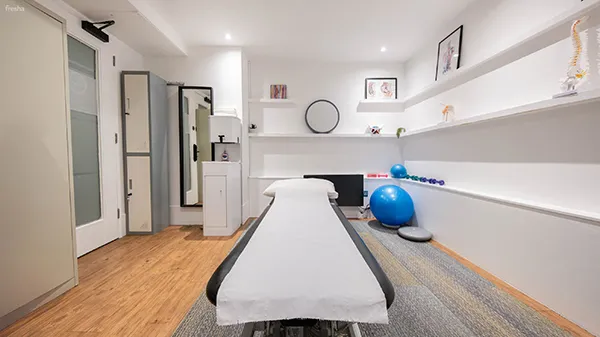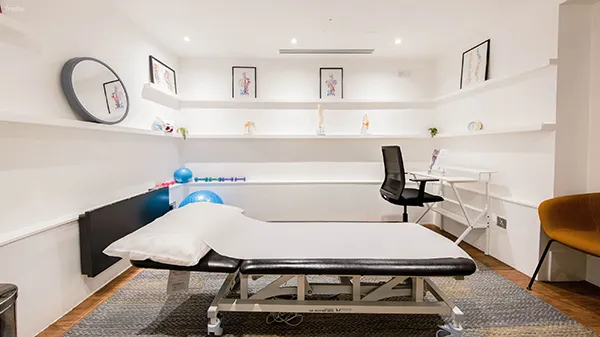Men’s Health Physiotherapy in London
Men’s Pelvic Health and Physiotherapy
Pelvic health is as important to a man’s well-being as it is to women. Though it may come as a surprise, men have pelvic floors too! Men’s health physiotherapy often works in conjunction with urologists, with the aim of restoring men’s health. Physiotherapy can be beneficial to men who are suffering from bladder or sexual dysfunction, such as erectile dysfunction, and pain. Often these issues are due to pelvic floor dysfunction (either weakened or overactive pelvic floor).
- 1 in 10 men may experience pelvic floor or continence issues during their lifetime
- 1 in 5 men suffer from erectile dysfunction in the UK (more than 20% of men under 40 years of age and more than 50% of men over 40 years of age)
- Up to 70% of men suffer from urinary incontinence following prostatectomy surgery
- 16% of men over 18 have overactive bladder

Our London Clinic
Our clinic is conveniently situated just off of Tottenham Court Road, in between Tottenham Court Road and Goodge Street tube stations.



Common men’s health issues that we can treat are:
- Stress Urinary Incontinence
- Overactive Bladder
- Erectile Dysfunction
- Ejaculatory Dysfunction
- Prostate surgery – pre-op and post-op care
- Pain in the groin, pelvis, bowel, or genitals
- Return to exercise

Why Choose Physioreform in London?
At Physioreform, we bring together compassion and clinical expertise to women’s health. Our pelvic physiotherapists understand the unique challenges of midlife and the importance of feeling heard and supported.
Whether you’re in the early stages of perimenopause, navigating menopause itself, or managing your health in postmenopause, we’re here to help you move forward with strength and confidence.
What happens during a Physiotherapy session?
Your initial consultation will include a thorough assessment and explanation of your treatment plan. The assessment may involve an internal rectal examination, however this is not always necessary. We also have access to real-time ultrasound which can be used on the abdomen or lower tummy to allow us to accurately assess your pelvic floor function without the need of an internal examination.
Treatment may include education and advice, manual therapy and exercise, with a focus on self-management.
